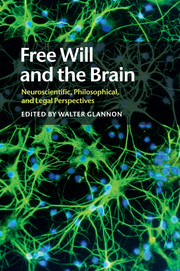Book contents
Part V - Legal implications of neuroscience
Published online by Cambridge University Press: 05 October 2015
- Type
- Chapter
- Information
- Free Will and the BrainNeuroscientific, Philosophical, and Legal Perspectives, pp. 229 - 286Publisher: Cambridge University PressPrint publication year: 2015



